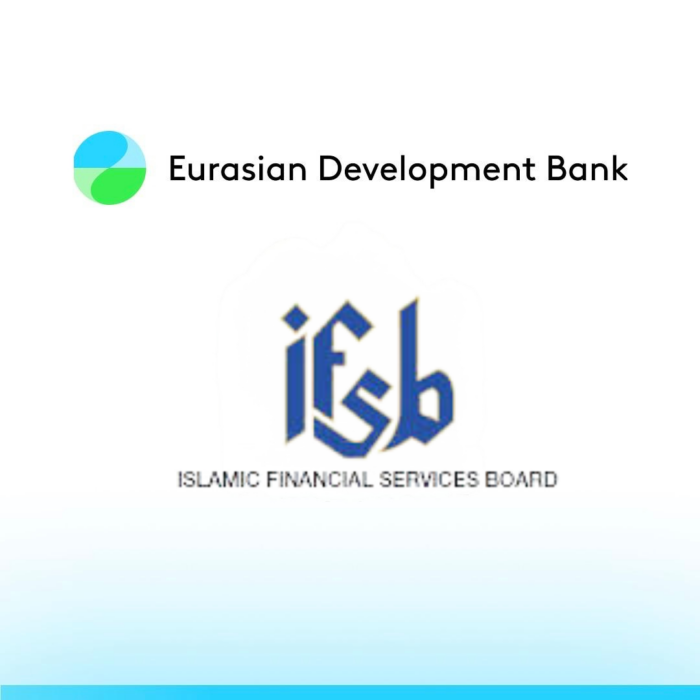ASTANA – The Eurasian Development Bank (EDB) has officially joined the Islamic Financial Services Board (IFSB) as an Associate Member following the 45th Council Meeting held on Dec. 22 in Djibouti. The meeting, chaired by Ahmed Osman Ali, Governor of the Banque Centrale de Djibouti, marked a significant milestone in advancing Islamic financial services across member jurisdictions, according to the EDB’s press service.

Photo credit: Collage is created by The Astana Times.
As an Associate Member, the EDB is now part of a prestigious network that includes the Central Bank of the Republic of Uzbekistan and the Centrale Bank van Suriname. This membership highlights the EDB’s commitment to fostering global standards in Islamic finance and contributing to the development of sound supervisory practices and governance in the sector.
According to Nikolai Podguzov, Chairman of the EDB Management Board, the EDB’s collaboration with the IFSB will enable us to leverage our expertise in promoting Islamic finance in the region and to become part of the global Islamic banking network.
“Our Bank is looking forward to contributing to the IFSB’s mission of fostering stability and resilience associated with the Islamic financial services industry, including the joint implementation of initiatives to enhance knowledge sharing and cooperation,” he said.
A key outcome of the Djibouti meeting was the establishment of a donor-funded account to support capacity development programs in member jurisdictions. This initiative reflects the IFSB’s commitment to enhancing the global infrastructure of Islamic financial services.
The EDB, a multilateral development bank with a charter capital of $7 billion, has played a pivotal role in promoting economic integration and sustainable development across Eurasia for over 18 years. With Kazakhstan accounting for nearly 60% of its investment portfolio, the bank supports projects in critical sectors such as transport, green energy, agriculture, digital systems, and manufacturing, aligning with the United Nations Sustainable Development Goals and Environmental, Social, and Governance principles.
Founded in 2002 and headquartered in Kuala Lumpur, the IFSB is an international standard-setting body for regulatory and supervisory agencies committed to ensuring the stability and resilience of the Islamic financial services industry. The organization develops and recommends standards consistent with Sharî’ah principles for banking, capital markets, and insurance.
As of July 2024, the IFSB comprised 188 members, including 81 regulatory and supervisory authorities, 10 international inter-governmental organizations, and 97 market participants operating across 58 jurisdictions. Malaysia, the IFSB’s host country, has granted the board international privileges under the Islamic Financial Services Board Act 2002.
